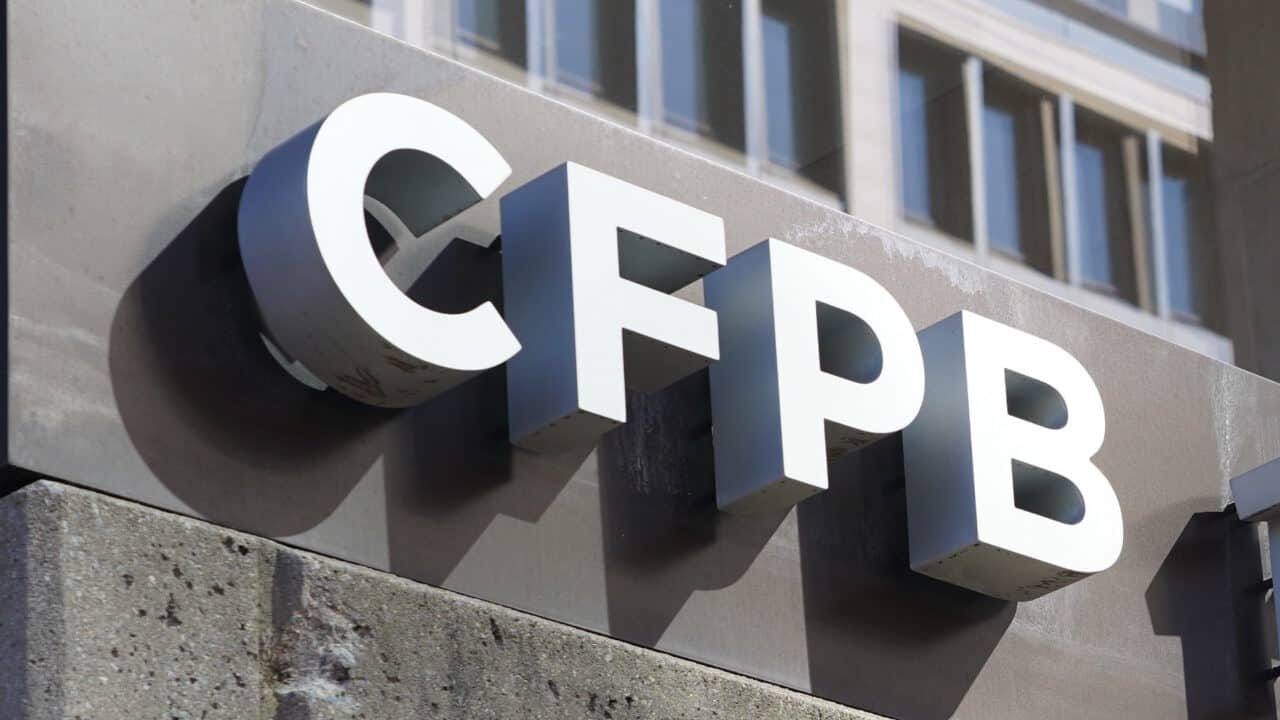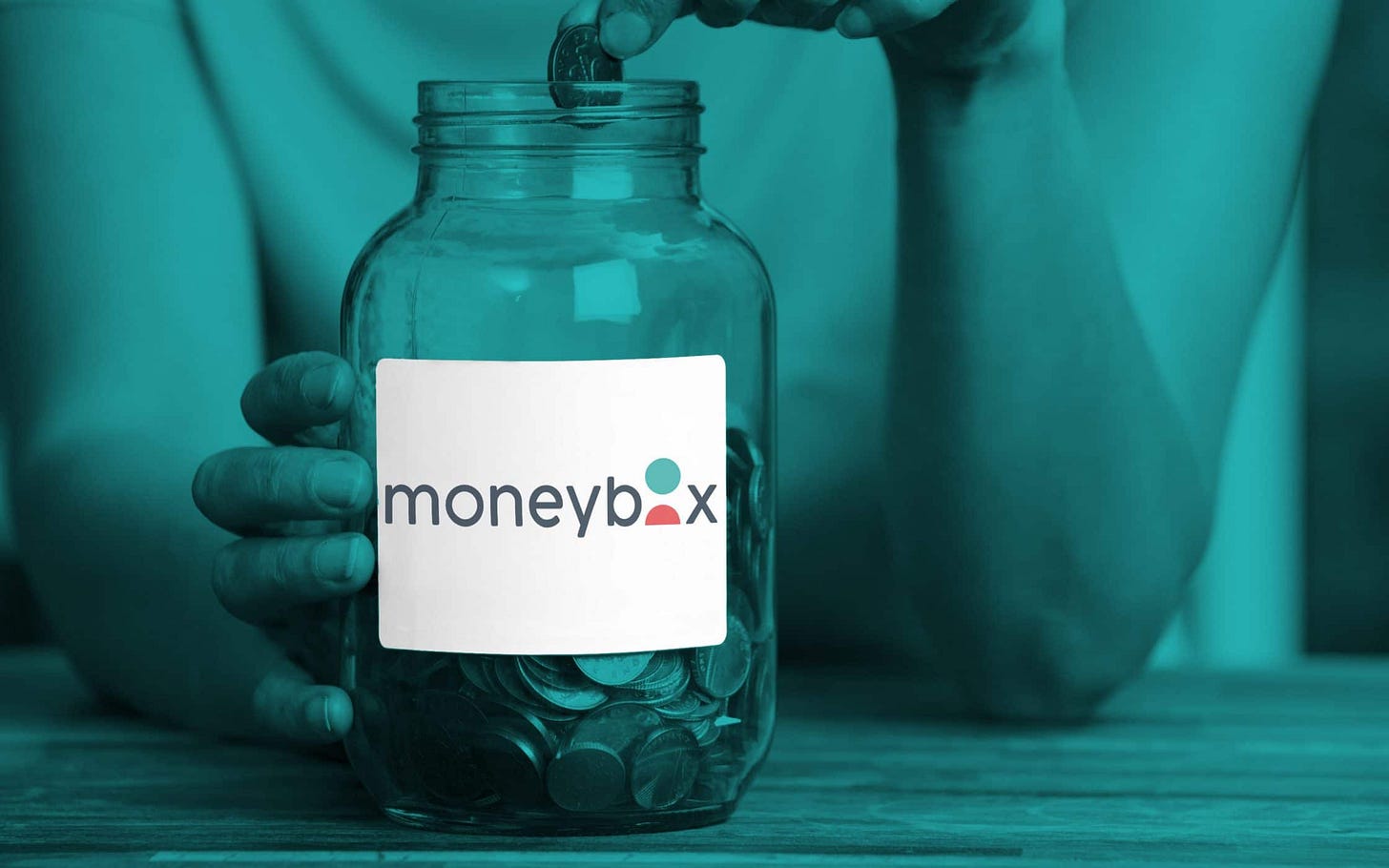Open Banking Finally Reaches the US, But Only 30% of Banks Will Have to Comply 🇺🇸
We're also covering Stripe's billion dollar embrace of stablecoins 🇺🇸, Better.com' AI loan assistant 🇺🇸, Klarna's bet on stock trading 🇸🇪, Moneybox impact on equity crowdfunding 🇬🇧 & more
🇺🇸 Open Banking Finally Reaches the US, But Only 30% of Banks Will Have to Comply
The US is finally adopting open banking. The Consumer Financial Protection Bureau (CFPB) has unveiled new rules, in a 564 pages document, requiring banks to open their data systems so consumers can securely link their bank accounts to fintech apps and other services. This means Americans will soon be able to connect their accounts to budgeting apps, payment platforms, and other financial tools without needing to share logins, a win for security and ease of use.
But some US banks are already pushing back. The day after the CFPB unveiled its new open banking rules, a Kentucky bank filed a 56-pages lawsuit arguing that the CFPB overstepped its mandate and that this new regulation could make banking data more vulnerable to data breaches. Obviously, it’s total bullshit, since screen scraping is already happening and is less secure, but it shows that traditional banks still see open banking as a threat, as it could allow their clients to switch more easily to a competitor.
Based on CFPB rules, banks with over $250 billion in assets need to comply to open banking regulations by 2026, while smaller banks with assets between 850M and $1.5B can wait until 2030 to do so. US Banks with less 850M in assets or less won’t have to comply. Of the roughly 4,000 US banks, only around 1,200 have more than 850M in assets, so only 30% of US banks will have to comply. The CFPB will reevaluate this 850M threshold every 5 years, so it’s possible that smaller banks will have to comply with open banking regulations… in the distant future.
While smaller banks get a free pass, all non depository financial institutions, which include mobile wallets and payment apps such as PayPal, Venmo, and Zelle, will need comply.
What does it means for account aggregators?
Open banking is likely more a boon than a threat for account aggregators like Plaid, Yodlee, MX and Flinks, which allow fintech to connect to their users’ bank accounts using a mix of screen scraping and banking APIs.
With open banking standards in place, these aggregators won’t have to rely as much on “screen scraping” techniques, where consumers provide their bank login credentials to access services. And while some very large fintechs might decide to connect directly to banking APIs, the vast majority of fintechs will continue to rely on their services given the tech investment needed to integrate with thousands of banking APIs and maintain those integrations.
Furthermore, aggregators are already preparing for a future in which the bank connexion itself is no the main product by providing a data analysis layer on top of the basic transactions data provided by banks, such as transactions’s categories, merchants’ logo, cash flow analysis, etc.
Source: Global Fintech Insider
🇺🇸 Stripe Pays 1.1 Billion for Bridge Hoping to Unlock New Markets with Stablecoins
Stripe has announced plans to acquire the US-based stablecoin payment processor Bridge for $1.1 billion. This acquisition could help global payment processor Stripe expand in the many countries it does not support yet, such as Argentina, Thailand, South Korea, Nigeria and South Africa, just to name a few.
Bridge, founded by former Coinbase engineers, helps clients such as SpaceX make international payments with stablecoins like USDT and USDC. As Stripe’s CEO Patrick Collison said in a X post following the transaction, “stablecoins are room-temperature superconductors for financial services”.
John Egan, Stripe’s head of crypto, emphasized the significance of this acquisition in a Linkedin post: “It has become clear that stablecoins and the crypto rails they run on are the future of global commerce.” This deal is expected to support Stripe’s growing suite of stablecoin products, from crypto payouts to “Pay with Crypto” options. The acquisition is expected to close in the coming months.
Sources: Bloomberg
🇷🇺 BRICS Summit Wraps Up Without Consensus on SWIFT Alternative
The BRICS summit in Kazan closed without consensus on creating an alternative to the SWIFT global payment system (that would not support the US dollar), despite Russian President Vladimir Putin’s call for one. Putin argued that “the dollar is being used as a weapon,” advocating for de-dollarization as a path forward, particularly as over 80% of global trade transactions are still invoiced in USD. While Russia and China have already adopted rubles and yuan for 95% of their trade, other BRICS members, notably Brazil and India, expressed concerns that such a shift could turn the bloc into a strictly anti-Western alliance.
Source: The Guardian
🇺🇸 Meet Betsy, the AI Mortgage Loan Assistant That Reduces Operational Costs by 35%
Better.com, a US-based digital mortgage lender, has introduced Betsy, the first voice-based AI loan assistant designed to streamline the loan process. Betsy, built into Better.com’s proprietary platform, allows loan officers to save time by handling routine tasks like gathering missing information, answering customer inquiries, and reaching out to leads. This added efficiency cuts operational costs by 35%, enabling loan officers to handle more clients without sacrificing quality.
Source: National Mortgage Professional
🇸🇪 Klarna Sets Sights on Stock Trading To Compete With Robinhood As IPO Approaches
Swedish BNPL provider Klarna is preparing to enter the stock trading space, aiming to rival platforms like Robinhood by allowing users buy and sell stocks directly through its app. According to Business Insider, Klarna advertised internally four positions to be filled in order to build this feature. The move comes as Klarna eyes a potential IPO and seems to be honing its hype machine and be desperate to position itself as much more than a BNPL provider. Notably, Klarna recently announced it would fire half its workforce and build internally many software it was previously paying for as a result of the increased productivity made possible by AI.
Source: Business Insider
🇫🇷 Netflix Show Leads to Democratizing Luxury Real Estate Investment in Europe
Luxury real estate brokerage Kretz, featured in the Netflix show The Parisian Agency, is launching the Kretz Club, an investment club that will allow Europeans to invest in luxury real estate through equity crowdfunding. The french brokerage have partnered with the equity crowdfunding platform ClubFunding to allow members to invest in carefully selected luxury projects with a minimum ticket of €1,000 (1,080 USD). Real estate deals offered to members include villas on the Côte d’Azur and other premium properties across Europe.
Source: Planet Fintech
🇬🇧 Moneybox Latest 70 Million Round Provides an Exit to Thousands of Equity Crowdfunding Investors
UK-based savings app Moneybox has successfully raised approximately £70 million (91 million USD) in funding, boosting its valuation to £550 million (713 million USD). This round allowed Moneybox’s 35,000 shareholders, including the 26,000 crowdfunding investors that invested in the fintech through Crowdcube, to sell 10-15% of their shares and realize value from the company’s growth. This transaction has been described in a Linkedin post by Crowdcube co-CEO Matt Cooper as the “largest secondary liquidity event ever for a private company in the UK and EU by number of sellers.” Cooper added that Crowdcube can now “manage liquidity events for companies at scale,” a capability that could prove invaluable for equity crowdfunding to become mainstream. Indeed, allowing retail investors to cash out from their startup investments might make it more attractive for them to invest in startups in the first place.
Source: Fintech Futures
🇲🇽 Fast Fashion Meets Fast Approval with Shein's New Mexican Credit Card
Chinese fast-fashion giant Shein has teamed up with Mexican fintech Stori to launch its first branded credit card globally, exclusively in Mexico. This initiative aims to expand Shein's footprint in the country’s rapidly growing e-commerce market while encouraging more Mexicans to enter the credit market, which currently has low approval rates. The new Mastercard will reward users with points for purchases, offering double points for clothing bought on Shein’s website. Stori, which has already gained 3 million clients in Mexico, hopes this collaboration will allow them to accelerate its growth in its home market.
Source: Reuters
🇺🇸 Netflix’s Rebel Ridge Comes to Life As US Marine Loses $86,900 to Civil Forfeiture
In a real-life scenario reminiscent of the Netflix film Rebel Ridge, real life retired Marine Stephen Lara experienced a civil forfeiture nightmare when Nevada law enforcement seized his $86,900 in cash during a routine traffic stop, despite the fact he was not charged with any crime. It took Stephen Lara more than six months and the legal help of a non-profit to retrieve his cash. Given the 4.5% of unbanked individuals in the U.S. and the 48% of Americans that distrust banks, forfeiture laws allowing authorities to seize cash based on mere suspicion could push more Americans into holding their money into crypto.
Source: Forbes
Upcoming Fintech Events
🇺🇸 Money 20/20 will be held in Las Vegas on Oct. 27th to 30th ($3,999), with speakers such as Chris Britt, CEO of Chime and Daniela Amodei, president of Anthropic.
🇦🇪 The Binance Blockchain Week will take place in Dubai on Oct. 30-31 ($300), with speakers such as Jeremy Allaire, CEO of Circle and Eowyn Chen, CEO of Trust Wallet.
🇸🇬 The Singapore Fintech Festival will take place Nov. 6th to 8th, with speakers such as Kfir Godrich, Chief Innovation Officer at BlackRock and Richard Teng, CEO of Binance.
🇿🇦 The Africa Tech Festival will be held in Cape Town November 12-14 ($1,749), with speakers such as Kagiso Mothibi, CEO of MTN Fintech and Christian Kajeneri, director, payment systems at the National Bank of Rwanda.
🌐 The OpenFinity 2024 Expo will take place online on November 20-21 (free), with speakers such as Jane Barratt, Chief Advocacy Officer at MX and Roy Kao, board member at Open Finance Network Canada.
🇬🇧 Fintech Connect will be held in London on December 4-5 ($325), with speakers such as Zahra Gill, Financial Crime Strategy Lead at Starling Bank (!!!) and Anirudh Narla, Head of Product - Global Payments, Anti-Fraud & Wallet at Hopper.
🇺🇸 The Bank Automation Summit will be held in Austin on March 3-4, 2025 ($632.50), with speakers such as Michael Lehmbeck, CTO at BankUnited and Koren Picariello, head of generative AI strategy for Morgan Stanley Wealth Management.
Fintech’s Musical Chair
🇨🇦 John McLane has been appointed as the new CEO of Plooto, taking over from interim co-CEOs as the company undergoes significant leadership changes.
🇺🇸 Patrick Bucquet has been promoted to Executive Vice-President at fintech consultancy Capgemini Invent, where he previously served as chief sales officer.
🇺🇸 Jon Anderson has joined Payouts Network, a Montana-based payment provider, as Chief Financial Officer.
🇬🇧 Alexandra MacMahon has been appointed as the new Country Manager for ING’s wholesale business in the UK, succeeding Malgorzata Kolakowska.
Have some fintech news you think I should include in the Global Fintech Insider newsletter or heard some rumours you’d like me to look into? Drop me an email at: jrbrault@protonmail.com











